Alijana Vuksic of Split Tourist Board: "We Have a Chance as an Auto Destination"
May 2, 2020 - Split Tourist Board director Alijana Vuksic talks about the kind of tourist activities we can expect during the corona crisis.
The coronavirus pandemic has posed a significant challenge to the whole world, and at a time when the #stayhome message is still in place, the tourism sector is particularly at stake.
On the topic of what kind of tourist activities can be expected during this crisis, Slobodna Dalmacija spoke with the director of the Split Tourist Board, Alijana Vuksic.
"In a crisis, it is first and foremost important to think strategically and positively. The situation is changing day by day, each market has a specific situation, so we follow the recommendations of competent national authorities and those globally such as UNWTO, especially monitoring the situation in our leading markets, in the UK, USA, Germany and France. Still, we also plan to focus on those markets that are the most stable in this situation," says Split Tourist Board Director Alijana Vuksic, and points out that in such crises, we must first think about changing the target markets.
"All important facts must be considered; for example, more trips will be made from destinations accessible by road, so we will directly communicate in that way. It is very important to emphasize those tourism products that are in high demand in a given situation, that is, to identify which products are. We have the advantage that Split and its surroundings is a destination that offers a full range of tourist products throughout the year.
Thus, through communication, we will emphasize those products that allow people to maintain social distance, such as sports, recreational and nautical tourism, but also health tourism, because if measured and mitigated, it is estimated that social distance could last until 2022," says Vuksic, adding that since the first day of the crisis, they have continued to communicate with their partners and tourists, via social networks and internal channels, while listening to experts' estimates of possible scenarios and tourist movements.
"I take the opportunity to announce the 'Together in Split' campaign, which, like many destinations, will inspire people with creative content to fantasize about the moment when they will be able to enjoy the beauties of our city and region again. This will send a message to tourists that we are together even though we are separated. With this campaign, in addition to the message of community with tourists, we want to primarily send a message of community to all tourism professionals in Split. We will invite employees of all our agencies, hotels, museums, travel guides to join this campaign. We aim to increase the visibility of Split through our joint efforts, primarily on social networks and communication with other digital channels, as this form of communication is now crucial. In this first phase of the campaign on our Facebook and Instagram profile VisitSplit, we have many interesting things to come, such as the 'Conference Call' section, through which our guides will tell interesting stories about Split, the 'Heritage quiz', which is a cultural knowledge quiz about Split, and interesting stories from our Welcome magazine. There are also recipes from our restaurants and hotels through the 'Cook o'clock' section and many other exciting things," the director announces.
"The fact is that the expectations from this season are very low compared to the previous year's record, only 10 to 15 percent, and according to the estimates of the Institute of Tourism, significant market stabilization will happen at the end of next year, so we will direct certain activities accordingly. Of course, I note that the situation could change day by day, so we regularly monitor changes in all markets. We will all bear the brunt of this crisis, and thus the system of tourist boards remains without revenue, but I am sure that together we will overcome this situation with the help of all measures and the Government of the Republic of Croatia, as well as the local government, or the City of Split. We are ready to do our best to bring benefits to our local community with minimal investment," says director Alijana Vuksic, and when asked if there is a chance for tourism to come to life, she says:
"Tourism is the most affected sector in the corona crisis and it will take time for the system to stabilize. This is an opportunity to build responsible and sustainable tourism based on quality offers and to channel communication messages properly. The situation we are in further emphasizes the importance of developing other branches of the economy. The chances of tourism coming to life depend solely on the epidemiological situation and adherence to the prescribed measures and instructions. As a tourist country, we are currently in a very good situation because we have strengthened the image as a health-safe destination, but it is still very uncertain as the situation can change, and it largely depends on the epidemiological picture in the main markets."
If tourists come to Split, how might it look?
"Tourism is partly possible if we all adapt properly to the situation and directions. Split also offers a range of outdoor activities that help maintain social distance, and it is precisely these contents that we will strive to present to the maximum to our local guests in the second part of the campaign. When it comes to foreign markets, we are monitoring the further development of the epidemiological situation and measures introduced at higher levels such as the "corona-passport" and accordingly, we will emphasize the specific offer through communication.
In the end, I will quote the message of our campaign that we want to emphasize encouragement, because in this situation, my team and I see an opportunity for new beginnings, new ideas and, above all, an opportunity for the community that we all often miss.
The world stopped because it was the only way to go again. The people parted, because that was the only way they could help each other.
But soon, travel will bring strength and love back into our lives, it is in human nature to move and to travel. And then, Split is here to offer you its beauty, heritage, lifestyle. We are waiting for you, we will be together again in Split," concludes the Split Tourist Board director.
To read more about travel in Croatia, follow TCN's dedicated page.
Hajduk Legend Tomislav Ivic Named Among 100 Best Coaches of All Time
May 2, 2020 - Reputable British magazine FourFourTwo has compiled a list of the 100 greatest coaches of all time. Hajduk legend Tomislav Ivic is among them.
Gol.hr reports that FourFourTwo has put together its list of the 100 greatest coaches of all time. Being one of the most respected football magazines, this list has drawn a lot of attention. The main criteria were trophies won, tactical ideas and motivational abilities.
While the list has not yet been published in full, Hajduk announced that the English football magazine named Tomislav Ivic as the only Croatian in this truly elected society.
Ivic was born in Split on June 30, 1933. As a Hajduk coach, he won the Yugoslavian Championships in the 1973/74, 1974/75 and 1978/79 seasons, and the National Cup in 1972, 1973, 1974 and 1975/76 season.
He coached the biggest clubs in the world, won titles and cups, and with the Portuguese Porto in 1987, won the UEFA Super Cup and Intercontinental Cup.
He received the golden badge and charter of the city of Paris, which he received from the hand of Mayor Jacq Chirac in 1990. He passed away in Split, June 24, 2011.
The Torcida award 'Hajduk Heart', by which fans select a club player who showed the most combative and sacrificial play during the season, was awarded to a non-Hajduk player for the first time. Namely, it was awarded precisely to Tomislav Ivic posthumously in 2011.
Last year, Ivic was ranked 42nd in the best football coaches of all time in by the France Football selection.
While Ivic is ranked 60th on the FourFourTwo list, Gol.hr reports that the magazine put former Manchester United manager Alex Ferguson in first. The Scottish coach has won a total of 49 trophies in his coaching career with Manchester United and Aberdeen.
With Manchester United, he was the Premier League champion 13 times and European champion twice. He is the manager with the longest working experience in the history of the club from Old Trafford (from 1986 to 2013).
Behind Ferguson were two famous Dutchmen, Rinus Michels and Johan Cruyff. The two are considered by many to be the coaches who have most influenced the development of the football game and have been very successful. Michels created the great Ajax in the 70s and Cruyff Barcelona in the 90s.
Pep Guardiola is the only current coach to rank in the top ten. Guardiola was placed in the high fifth place.
Only one non-European coach is among the top ten. This is the famous Helenio Herrera, who was born in Argentina but later took French nationality. The great Ukrainian Valery Lobanovsky is the only one among the top ten to come from the former Eastern Bloc.
Scotland has as many as three representatives among the top ten. In addition to Ferguson, there is Matt Busby and Bill Shankley. Busby created the great Manchester United in the 50s and 60s, and Shankley Liverpool in the 60s and early 70s.
Barcelona boasts having the most coaches in one career period: Michels, Cruyff and Guardiola. In the top ten is Arrigo Sachi of Italy and Ernst Happel of Austria.
Jose Mourinho failed to make it into the top 10. The Portuguese manager ranked 12th, while, for example, perhaps the most promising German expert Juergen Klopp is currently 30th.
Other notable names include Brian Clough in 11th, Vicente del Bosque in 15th, Ottmar Hitzfeld in 17th, Carlo Ancelotti in 18th, Louis van Gaal in 20th, Bob Paisley in 22nd, Arsene Wenger in 23rd, Fabio Capello in 24th, and Diego Simeone in 43rd.
The full list will be released in the June 2020 edition of the FourFourTwo magazine.
To read more about sport in Croatia, follow TCN's dedicated page.
City of Split Announces Modest Sv. Duje and Corona Inspired 2020 Poster
May 1, 2020 - A message from the City of Split about this year’s modest Sv. Duje celebration.
As we delve into the days of Sudamja 2020, a festival dedicated to the patron saint of Split, the holy Dujam, given the circumstances this year, we must celebrate modestly, begins the City of Split announcing this year’s Sv. Duje celebration.
“On May 6, our archbishop and mayor will inaugurate the feast of Sv. Duje, and instead of Holy Mass on the waterfront on May 7, Archbishop of Split-Makarska, Marin Barisic, will hold a solemn mass in the Cathedral with a few priests, which will be broadcast on the first HTV program.
This year, there will be no Sudamja fair, no traditional tonbula, no sporting events, no concert, and no fireworks. Everything we do will be marked by the screens of local TV stations, radios and social networks, and you will be able to follow it all with your family from home."
The City asks all citizens to celebrate this festival in the environment of your own home and respect the decisions of the National Civil Protection Headquarters.
The Sudamja poster traditionally annually commemorates the Sv. Duje festivities, and though the theme has been explicitly Split, this year, it has switched to the coronavirus pandemic.
Thus, this year’s Sudamja poster is called the Zero Year Consolation and commemorates the feast by a straightforward but powerful message: “Don't be afraid."
The poster recalls the most significant event in the history of Christianity, the crucifixion of Jesus, on which the whole religion is based, and which is especially important right now, the City says.
“Through His anguish and resurrection, He redeemed all sins and saved the world from evil, including sickness.
In no word or image, the poster shows the "evil" Corona.
The poster shows Jesus' crown of thorns - the Latin "CORONA SPINAE CHRISTI", and in turn, it is a symbol of Jesus, his torment, redemption and salvation.
Not even blood is shown, but quotation marks and points as an association with it, and which in this way is presented metaphorically representing words, wisdom and consolation.
Namely, in the spirit of current daily life and the #OSTANIDOMA (Stay Home) message from the National Civil Protection Headquarters, no poster will ever see the light of day. There is no celebration program, people are mostly home, so there is no need for an otherwise custom printed poster. Thus, this poster for Sudamja, probably for the first time in history, is only a poster for home, prepared but not printed," said the City.
The poster was designed by Split designer Stjepko Rosin, whose work for Sudamja last year won him the silver award from Graphis, one of the world's most respected American magazines for graphic design and advertising, based in New York. The poster was also included in the Graphis Design Annual 2020.
To read more about lifestyle in Croatia, follow TCN's dedicated page.
Nextbike and Split Parking Team Up to Offer Free Rides During Corona Era
April 30, 2020 - Split Parking and Nextbike have teamed up to ensure more citizens use cycling as a form of transportation this spring, and all they need to do is register by the end of May.
Slobodna Dalmacija reports that at times when increased caution is needed and the epidemiological experts call for social distance, bicycles have proven to be the ideal means of transportation, at least in Split.
The numbers confirm that.
Namely, the daily record of rentals was broken with 322 rentals last Saturday since the system was put into operation a little over a year ago.
Also, the last week ended with 1,437 rentals, making it one of the best weeks by the number of rentals, with a record number of new users in April, 1,122 to April 27.
In order to continue the positive trend, Split Parking and Nextbike have allowed all future users of these public city bikes the chance to activate their monthly seasonal subscription for free.
The 30-day campaign includes an unlimited number of daily rides for up to 30 minutes.
For 30 days, the citizens of Split will be able to use the free trial to see how Nextbike works on a daily basis. All you need to do is enter the code SPLIT2020 after your account is activated, and the offer runs until May 31, 2020.
Split Parking said that they were pleased that citizens recognized the benefits of this type of transport, especially in today's environment, where it is recommended to avoid crowds and large numbers of people in the same place. Cycling has thus become one of the safest forms of transportation.
"It's a good time, citizens are eager to get outdoors, and there are still obligations that must be fulfilled, as people have to go to work, to the doctor, to the shop, and bikes can make it safer, faster and cheaper. Certainly, we must not forget the environmental component of this form of transport. We also expect the April figures to break past results," said Marko Bartulić, director of Split Parking.
They also stressed that all safety and security measures are implemented on a daily basis and that bicycles and stations are regularly cleaned and disinfected with special means, while repairers wear all necessary protective equipment, all to ensure maximum protection for all users.
In order to meet the increasing demand, the entire system will soon be upgraded, which includes setting up around 40 new stations and 175 new bicycles by the end of the year.
This will give each district at least one station and all major institutions and locations will be covered.
To read more about lifestyle in Croatia, follow TCN's dedicated page.
PHOTOS: A Split Spring in Self-Isolation
April 29, 2020 - How does Split look during self-isolation? A collection of photos from our readers.
On day 41, 50, or 500 in self-isolation (depending on your mood), we're relatively sure the flood of emotions everyone is feeling range from the positive 'there is a light!' to those of us going through the motions murmuring 'I'm okay...' to the inevitable 'WAKE ME UP FROM THIS NIGHTMARE'.
All emotions at this time, of course, are warranted.
Those of us in Split, however, are quite lucky. After all, there could be far worse places to be stuck. Not only do we have the Adriatic Sea at our fingertips, but we're surrounded by mountains, forests, and ancient buildings that fuse to form the masterpiece that is the backdrop of our quarantine dreams.
While we are still advised to #stayhome, solo walks and ventures outside are still permitted so long as groups of people don't gather. And with the quintessential spring weather we've been having, it's hard not to get outside to grab a small dose of Vitamin D - even if it's from the comfort of our balcony.
Our always fabulous TCN readers sent in photos of Split over the last month as the typically busy streets emptied to flatten the coronavirus curve.
Whether you're here now or dreaming of your next trip, Split will always be this beautiful.
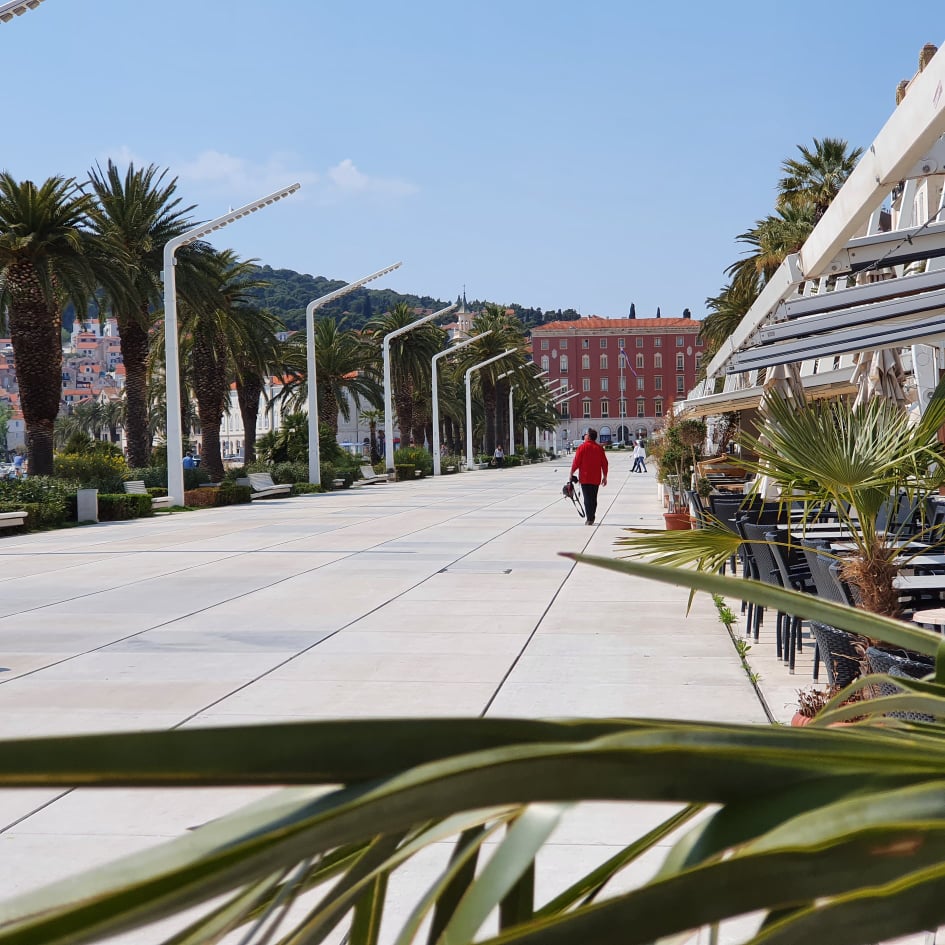
The Riva, almost unrecognizable.
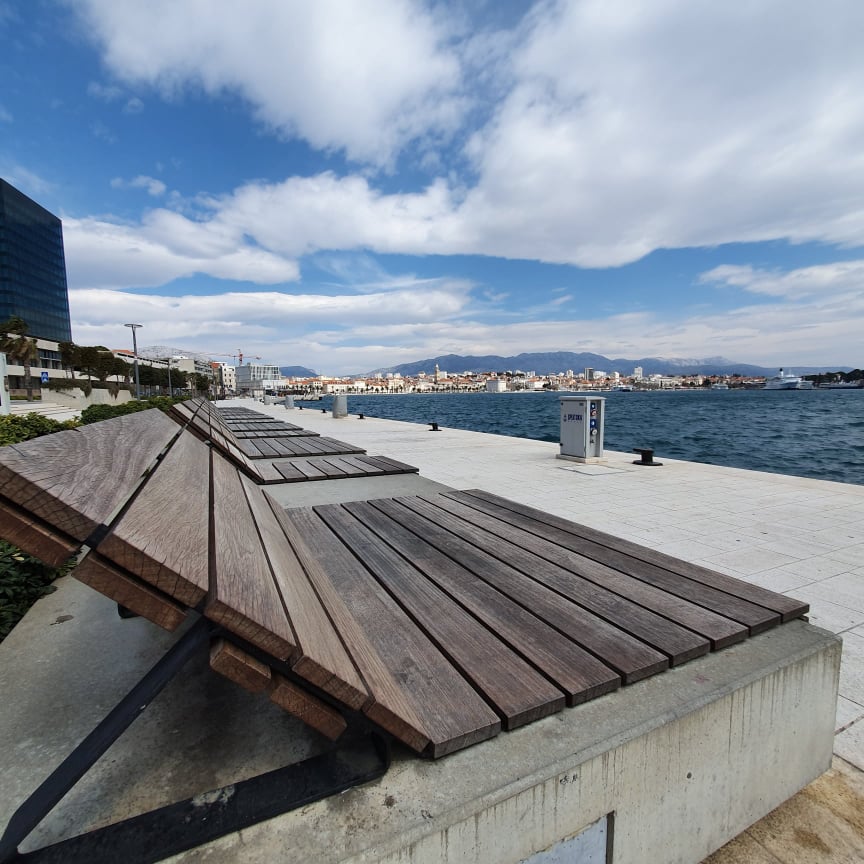
The West Coast without a soul in sight.
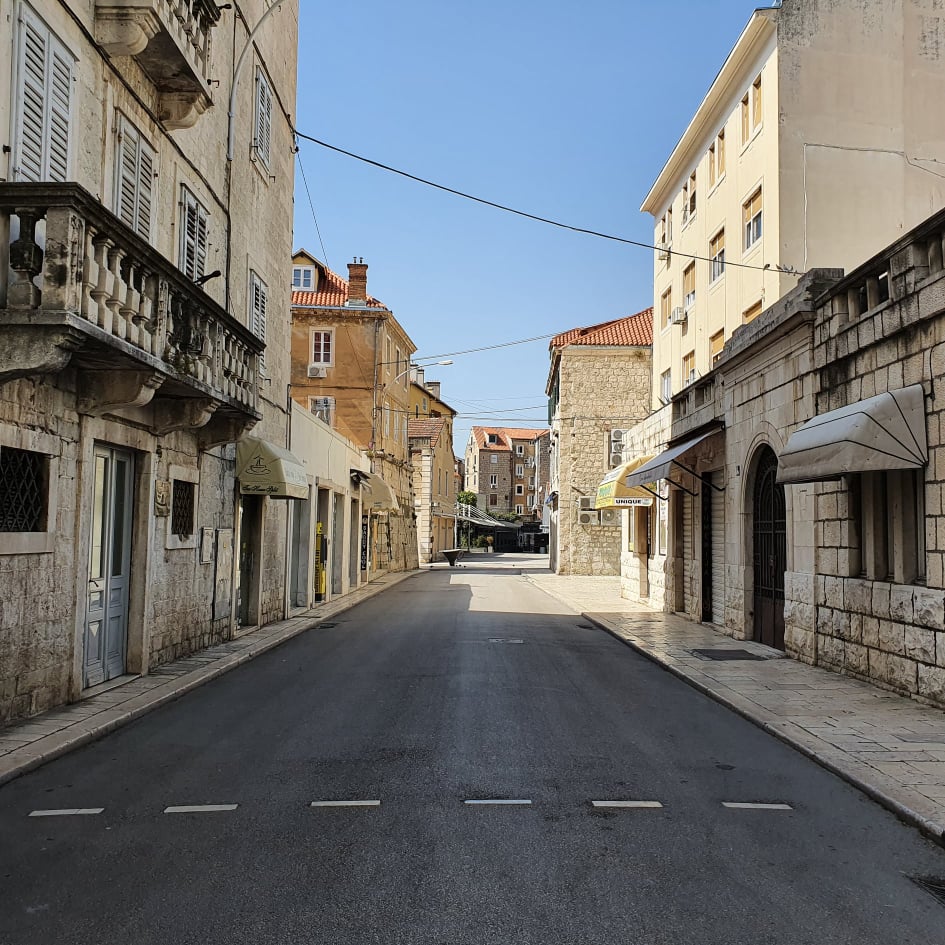
No visitors at FroggyLand, either.
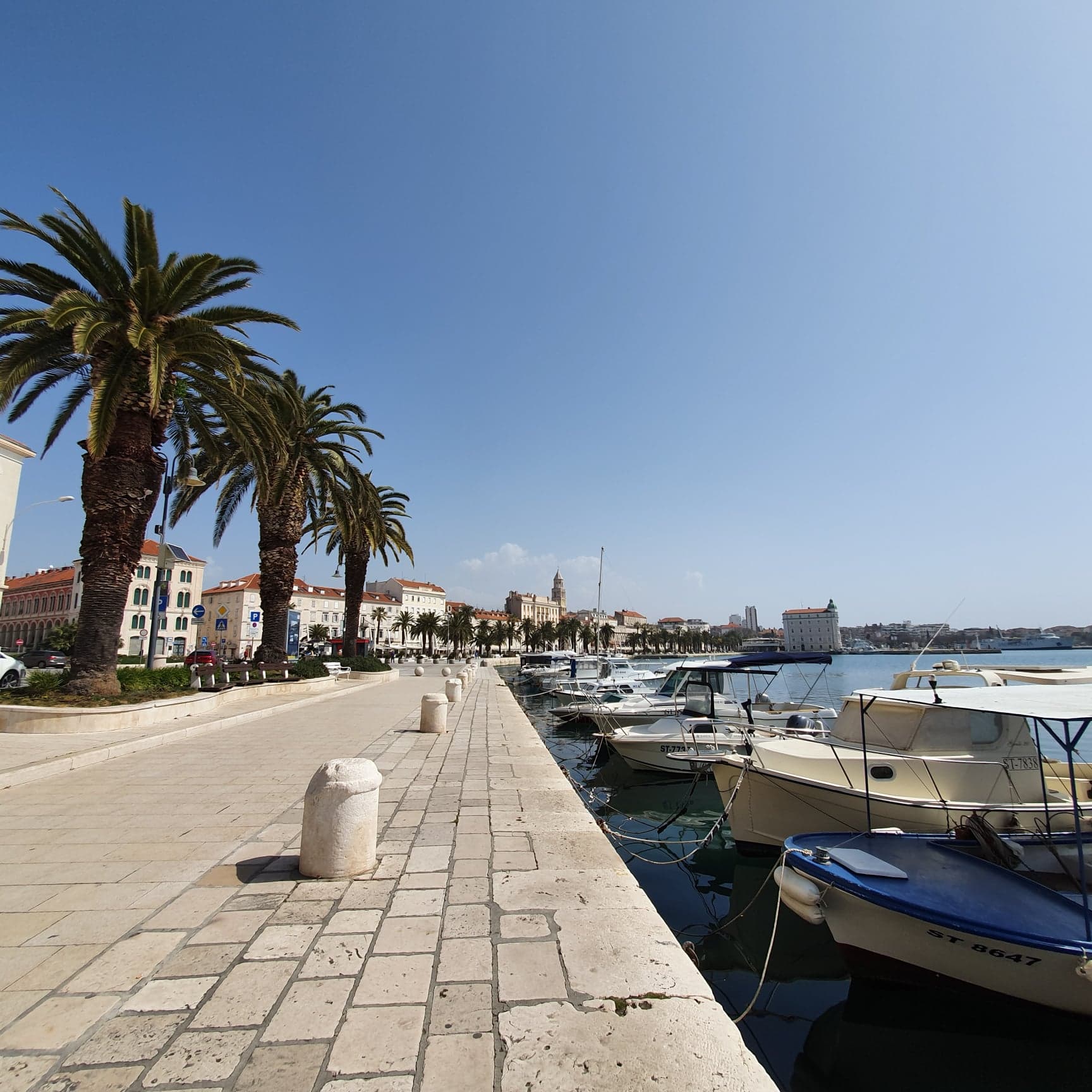
The benches that usually host groups of Croatian singers in the summer are quiet in spring.
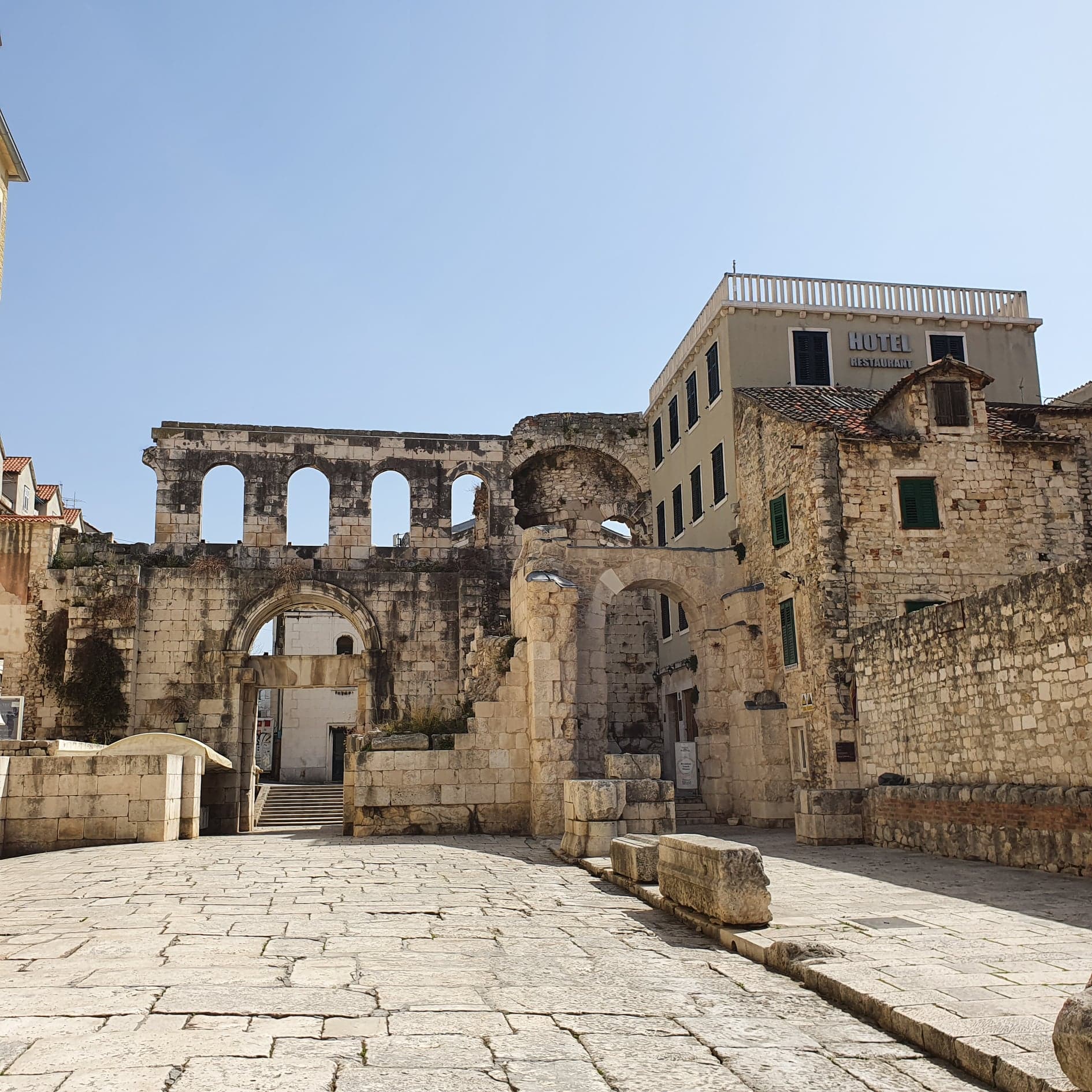
The Silver Gate of Diocletian's Palace.
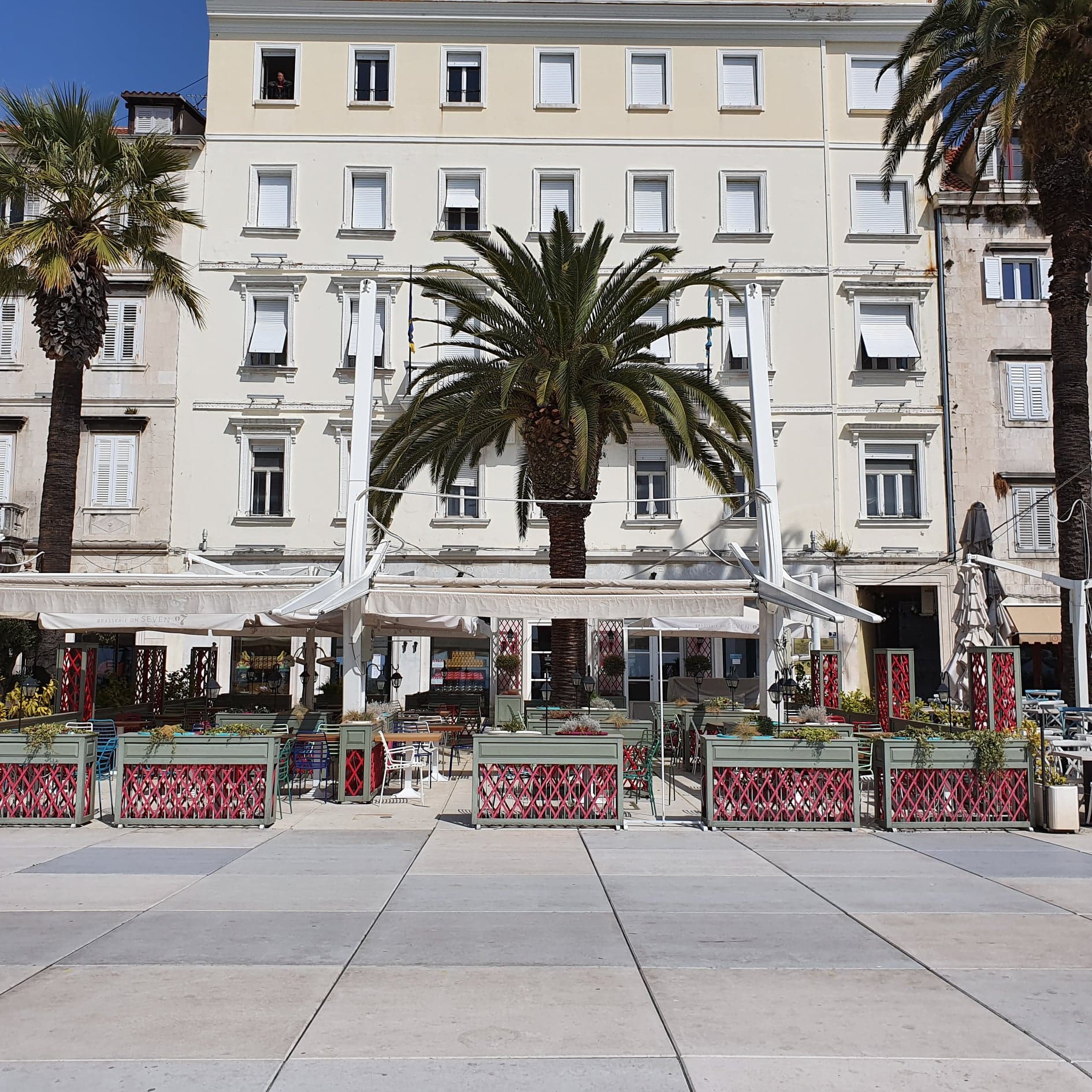
Riva favorite Brasserie on 7. We can't wait to share a coffee with you here again.
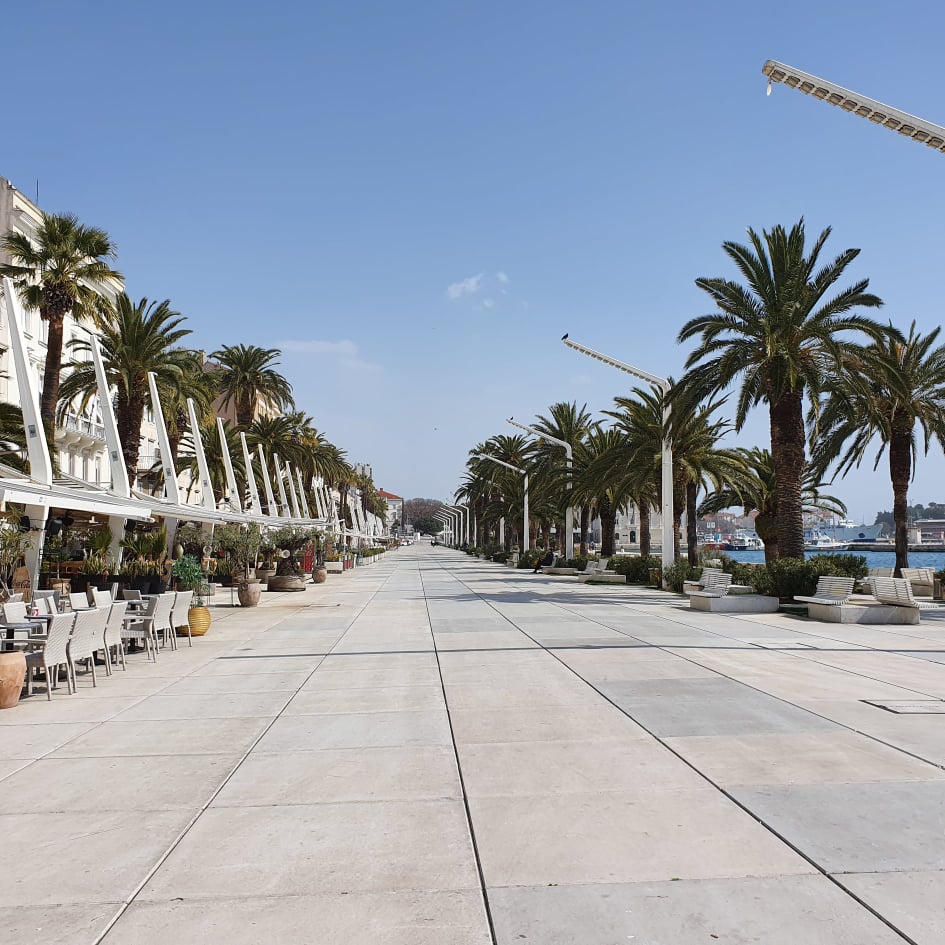
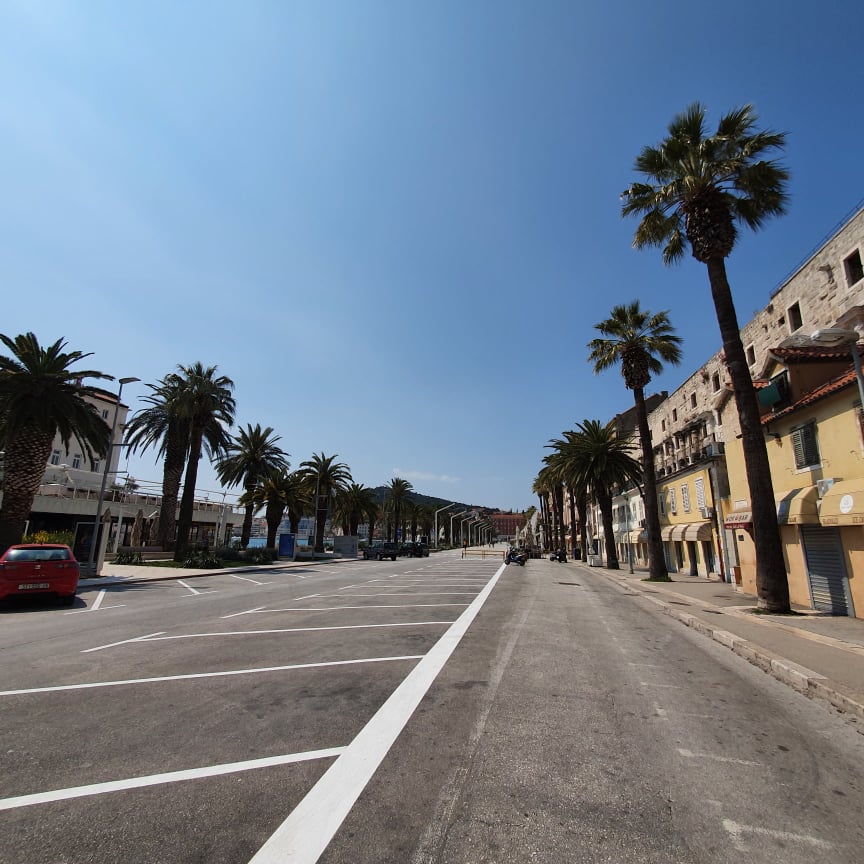
The parking for the Riva, usually lined with vehicles, mopeds, and shoelace dealers.
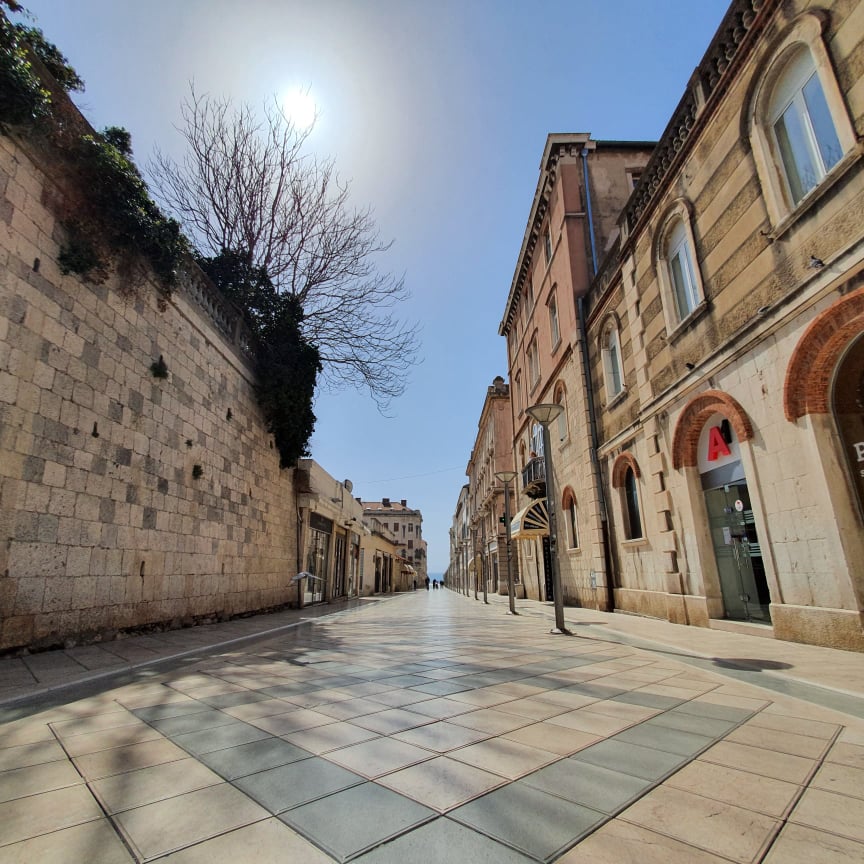
Vacant Marmontova.
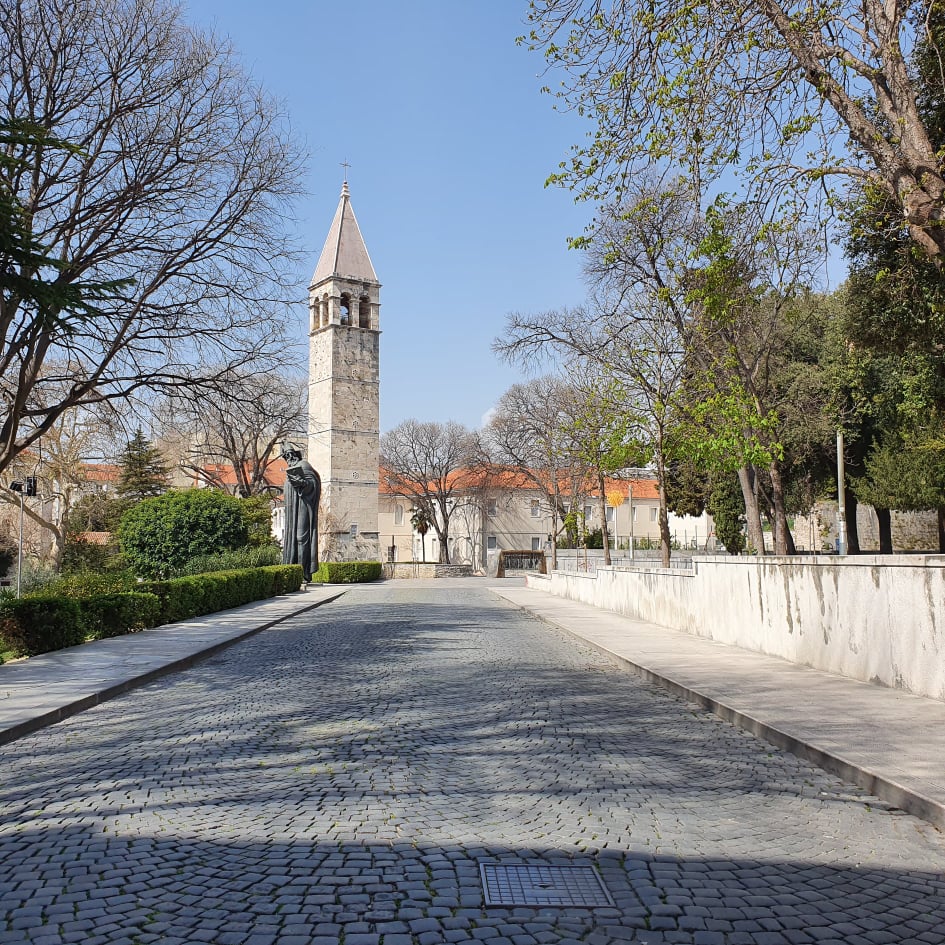
Grgur Ninski looking extra regal.
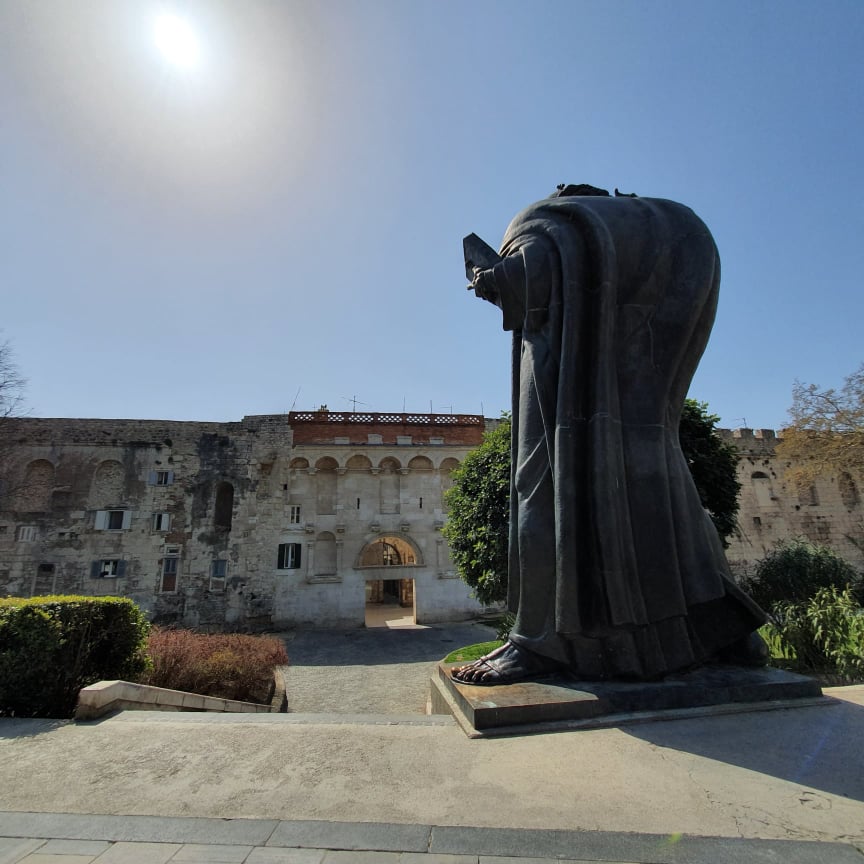
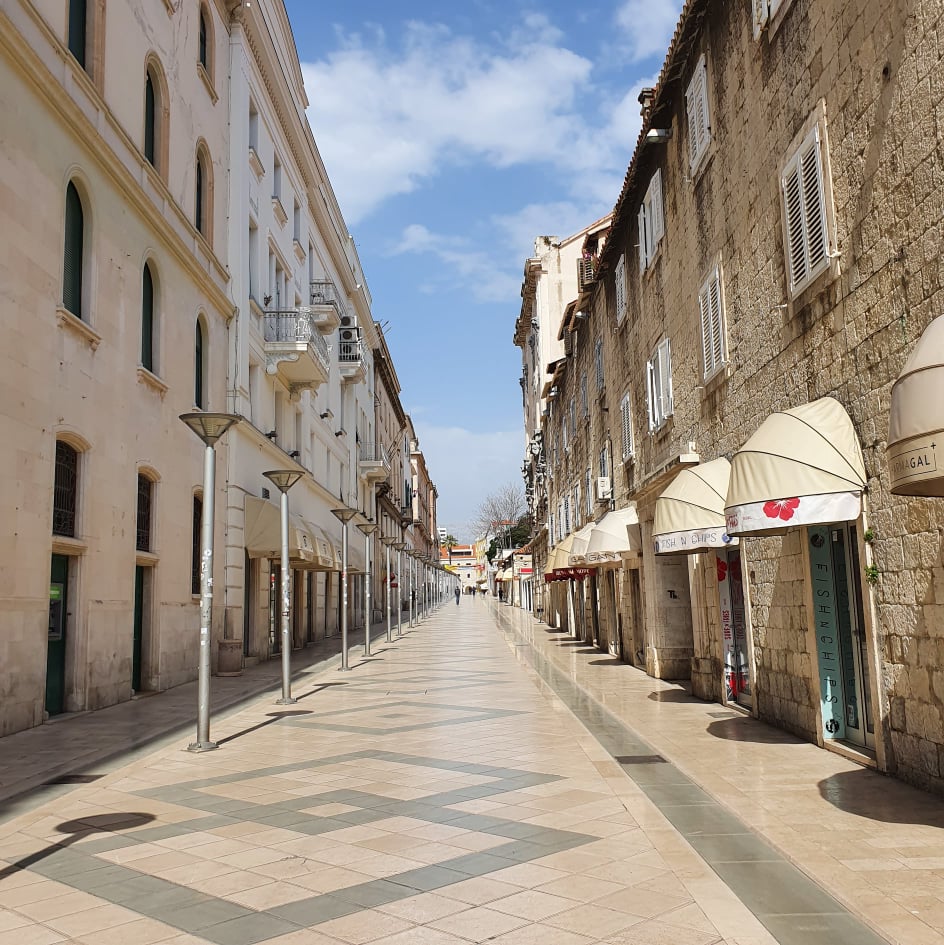
Split's famous shopping street... without shoppers.
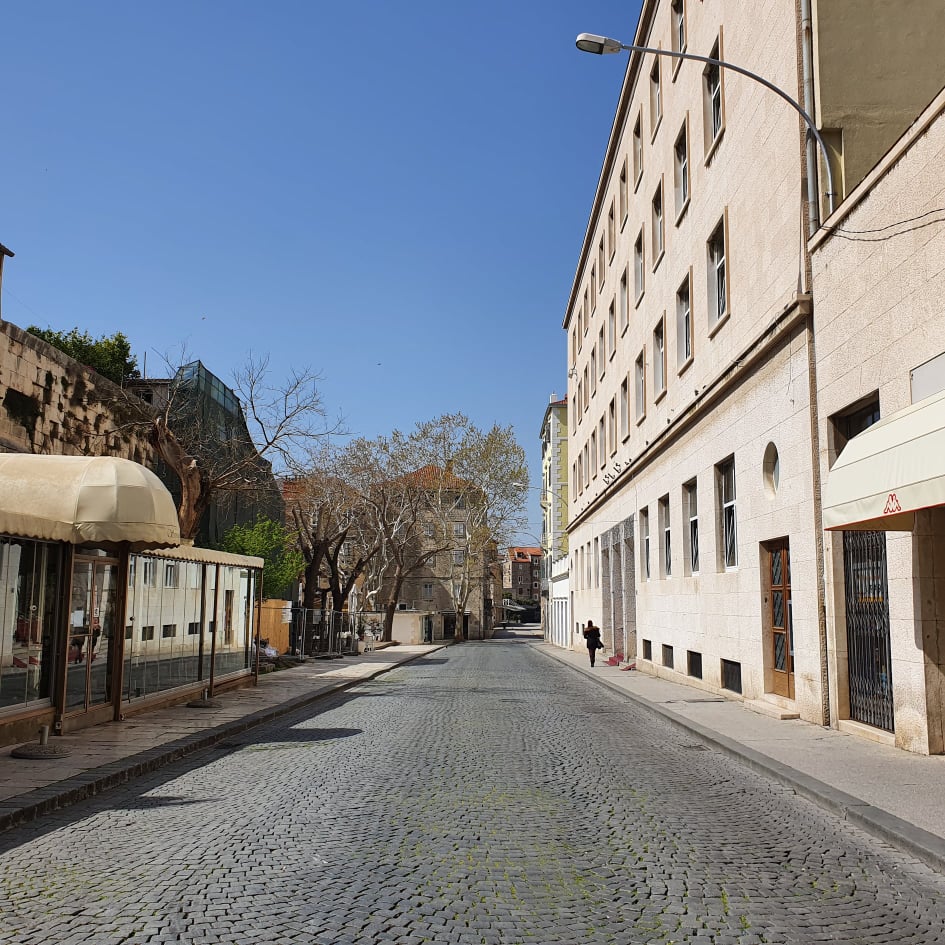
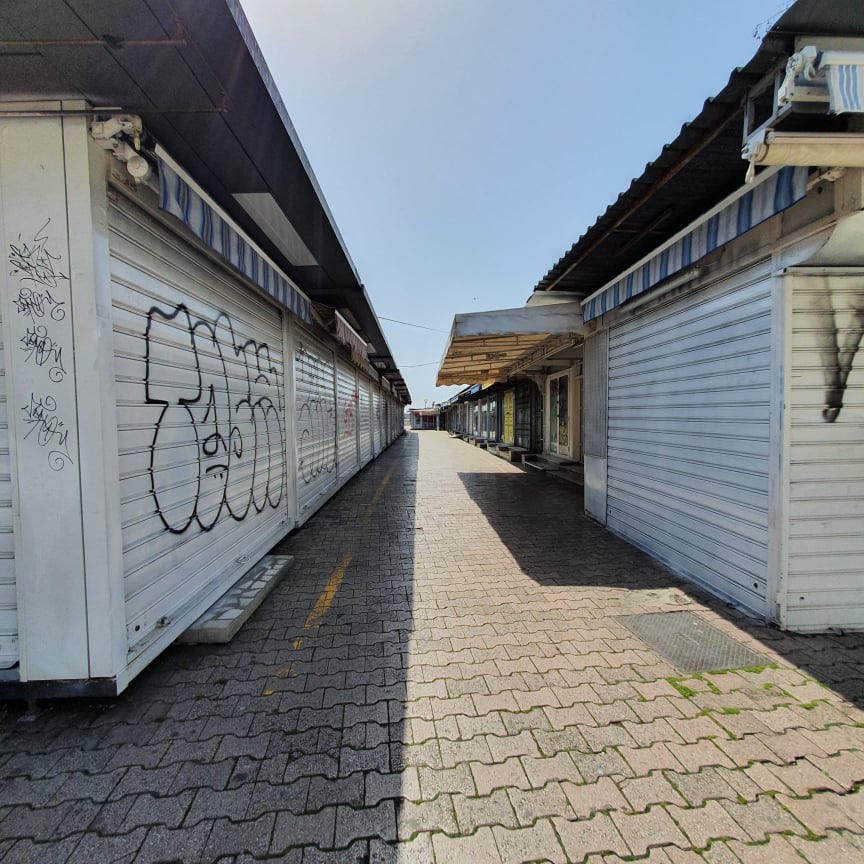
Usually bustling with buyers looking for everything from smoked meat to underpants.
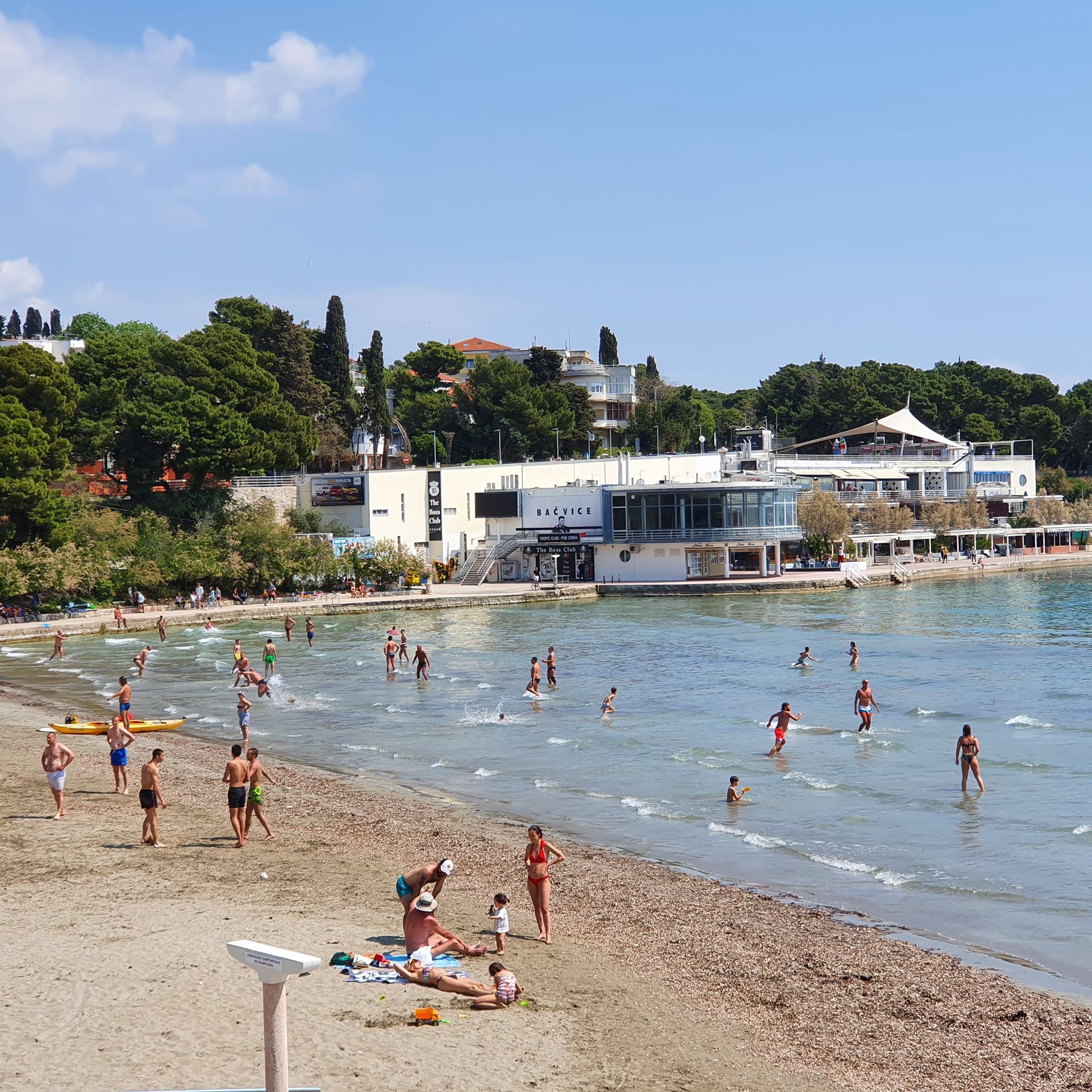
And a busier Bacvice Beach at the first sign of warmer weather.
To read more about lifestyle in Croatia, follow TCN's dedicated page.
Italian Eurosport Dedicates Cover to History of Hajduk: "A Club That Knew How to Say 'No'"
April 29, 2020 - The Italian edition of Eurosport has dedicated its cover to Hajduk, which they describe as "a club that knew how to say no!"
"Split is the city that gave the most Olympians and Olympic medal winners per capita, a total of 74. Zeljko Jerkov, Duje Krstulovic, Toni Kukoc, Dino Radja, Goran Ivanisevic, Mario Ancic, Blanka Vlasic, Vladimir Beara, an endless array of water polo players," reads the introduction as reported by Gol.hr.
"During the award for the best European goalkeeper, the legendary Lav Jašin said, 'for me the best is Beara'. Beara was one of the best in the world, but he didn't live in the era of television and his tricks went into stories first and then into legend. He did not lay down the live wall for free kicks because he wanted to see the rival. When he moved to Belgrade's Red Star after three championships with Hajduk, many took his word for it. Why? Because Hajduk was not just a football team. We know you've read this phrase many times and you wonder why it would be different now.”
Eurosport further recalls the club's founding and the fact that the club's name was not chosen by chance, but because the Hajduks fought against the Ottoman army in the Balkans and defended the population against the Turks.
"Many say that the union between Hajduk and Split is the closest symbiosis between the team and the city that exists worldwide. There is graffiti on every corner, there are flags in almost every car, and the soul of the city itself is embodied by Bili, the nickname of Hajduk," the Italian media points out, then recalling the most glorious moments of Hajduk's past that took place outside the football pitch.
"The club, which was founded in the most anarchic city on the Croatian coast, could not obey the will of the regime, and therefore, during the Second World War, 'no' arrived from Hajduk twice, which echoed sensationally. After the fascists occupied Dalmatia, the Italian Football Federation (FIGC) wanted Hajduk to play in the Italian Championship, but the players and management refused to do so and went to the island of Vis, which was controlled by the Allies. Shortly afterward, the request of the Ustasa regime, Ante Pavelic, to play in the Croatian league at that time was rejected.”
After the rejection of the Italians, Joseph Broz Tito soon received the same answer.
"After the end of World War II, Hajduk was no longer a symbol of the city, but a symbol of the entire country, so Marshal Tito wanted to move them to Belgrade to make Hajduk a club of the Yugoslav army. An honorable suggestion, but - to leave Split? Become a symbol of someone else? Hajduk said 'no' a second time and continued to grow and build its myth."
Eurosport goes on to write about how Hajduk's biggest rivals are Dinamo Zagreb, Red Star and Partizan, the founding of Torcida, the rivalry of fans with the Bad Blue Boys, the numerous class players that originated from Hajduk's football school, and a crucial moment that happened ten years ago.
"The time had come for a big decision - to sell the club to foreign investors or to stay ours? Society, the city, and the fans had no dilemma: Hajduk is not for sale! This is how the third big 'no' from Hajduk arrived, the one aimed at foreign money. Fans were aware that because of this, they would not be able to compete for an important place in Europe, that it would be difficult even in the Championship against Dinamo. Still, pride is preserved," Eurosport concluded.
To read more about sport in Croatia, follow TCN's dedicated page.
Split Boutique Hotel Briig Wins Distinguished Architecture Award
April 29, 2020 - Although its modern architecture, which significantly deviates from the Bacvice environment, has caused a lot of controversy and various criticisms, Boutique Hotel Briig in Split has won the prestigious Big SEE Architecture Award 2020.
The symmetrical white building was designed by Damir Rako and Maja Tedeschi, and the award was completely unexpected. The entire team involved in this four-year project, Rako said in an interview with Dalmacija Danas, showed that Split can still do something new and different, which is recognized by the experts at the international level.
Big SEE is an association that awards not only in architecture but also in other creative industries in Southeastern Europe. It covers 19 countries and about 350 million people, which is an extensive area and encourages architects, designers and creators of different profiles, Rako said. The headquarters of the association, he added, is located in Ljubljana, where a major festival will be held in October at which the hotel will be presented.
"We're really surprised. The award has arrived without any announcement, so this week we should send the material and prepare a presentation for the big exhibition that will be held within the festival. I have to admit that this award really means a lot to us because the hotel was quite demanding to execute," the architect said.
Briig, as he explains, is the first design hotel of this type in Dalmatia. In its lobby, monumental curved black stairs stand out, while the center of the hotel is an internal atrium, broken out like an exterior facade. The vertical square opening, located in the middle of the building, rises to the glass roof at the top, connecting the inner galleries to the five-story rooms. The Briig Hotel is also a kind of "contemporary gallery". The original furniture and lighting are the work of renowned world designers, and the stone from northern Italy, posters of the Split painter Boris Bucan, graphics of Julija Knifera, and the installation of Aleksander Srnec are just some of the highlights.
However, the construction of this hotel was not welcomed by the public.
"We are welcomed by conservative groups, even though Split has always had a tradition of modern architecture and can boast many great works, such as Split 3, Poljud Stadium, and many other works. This is a great incentive for us because the award is a great indicator that modern architecture in Split is not to be feared," Rako pointed out. Split, he reveals, has always been an inspiring city for architecture.
"Despite all the difficulties, Split is a world fact in the field of architecture. In every period of its history, it had authentic architecture, with which it responded to world trends and always had something to say. It is interesting to note that Juraj Dalmatinac first worked on the Papalic Palace and the small Gothic palaces in Split, and only later became widely known for the Sibenik Cathedral. Our city has a good position on the world architectural map, and now we can say that contemporary architecture is one specificity, regardless of the opposition," he added.
Resistance to modern architecture was present in the 1960s. The Marjan Hotel, one of the most important hotels from the '60s in this part of Europe, is one of the ideal examples, as well as the Segvic house by the Peristyle.
"These are projects that were a step back in their time, but also experienced terrible resistance. This small hotel is a miniature in comparison, but it is also an indicator that as much as Split is vital in architecture, it is also vital in resistance to everything new," the architect believes.
We like to say that we call for the right to be different, to look and behave differently, but we forget that houses have the same right, as metaphors for ourselves.
"The house must be a reflection of its time, not some false romantic vision of the past. If we do imitations and copy history with architecture, we are actually lying to ourselves and those to whom we leave those houses in the future," the architect concluded.
To read more about lifestyle in Croatia, follow TCN's dedicated page.
Will Ultra Europe Go On? Latest News and How Concerts Might Look in Croatia After Corona
April 29, 2020 - How will concerts look after corona? And will Ultra Europe go on? A closer look at the entertainment industry in Croatia.
"The government of the Republic of Croatia could and should show goodwill for the controlled but urgent return of music to both terraces and concert venues," Croatian musicians said.
Slobodna Dalmacija writes that for this reason, the Croatian Music Association 'Unison' sent a letter to the Government, the Civil Protection Headquarters, and the Croatian Institute of Public Health, with five proposed models for the return of live music performances.
"Opening music studios for recording and production, concerts on terraces and open spaces such as squares and waterfronts, drive-in concerts, indoor and open-air concerts," is a list of proposals by Unison. This umbrella band brings together associations of composers, performers and their services for the collective exercise of copyright and performing rights. With the implementation of the proposed models, 17,000 people - music creatives and their families - would again be able to return to pre-pandemic coronavirus status.
At present, there are approximately 5,000 writers, 10,000 performers, and approximately 2,000 supporting musicians and technical staff involved in the concert and performing activities in Croatia. Live music, Unison points out, has seen a huge drop in business, but also a drop in revenue by one hundred percent over normal conditions. Therefore, musicians must return to performing as quickly as possible and in customized operating conditions for the following weeks and months.
Music creatives and all those whose jobs are related to the industry are calling to join the first wave of relaxation measures, Unison said, as restrictive public gathering measures have hit the music and cultural community first and foremost in the past six weeks. At first, for security reasons, as live performances on terraces, concerts and stadiums were canceled and banned, followed by measures for all other branches of the economy.
What will the live performances look like in the life that follows the coronavirus pandemic?
First of all, they believe that music and film studios for recording and production should be open, since recording at home and semi-professional or amateur quality cannot permanently replace the professional mode and the required studio quality of production.
"The current mode may meet the market's need for new works in the short term, but it will soon be saturated with such products because this mode has no economic or financial impact for participants," Unison said, noting that it could immediately start recording with 2-3 people in the studio, from May 11, and those with multiple members (up to 10 people), and from May 18, with orchestras and choirs.
According to the instructions of the Civil Protection Headquarters, which stated the possibility of opening terraces at hotels and catering facilities for the needs of domestic and possibly foreign tourists, the possibility of holding concert performances of bands should be approved from May 11 (or from the moment of their opening) and DJs (for simpler technical needs for music production) in such venues. Musicians, they believe, could also perform concerts in squares or waterfronts in tourist sites, with mandatory adherence to space, defined by the positions in front of the stage, and epidemiological measures.
Similar to the principle of religious services, musicians have been demanding, from May 4, that concerts be held indoors during which it is possible to ensure mutual physical distance while respecting epidemiological guidelines.
They suggest the ability to hold concerts with a limited number of visitors up to 150 (separated by space tags - flags, stickers on the floor, ribbons ...) or by seating, which would be held in substantially larger spaces, with a usual capacity of 300 visitors upwards. They propose the same for larger spaces, which can accommodate 200 to 2000 people under standard conditions, and now the maximum number of visitors would be 150 per event.
Starting May 18, they would also like to have the opportunity to host major concert events (for more than 150 visitors) in large concert venues such as gyms and similar venues that otherwise have a capacity of 2000 people upwards.
For the summer of 2020 (from June onwards), it is proposed to return to open-air concerts such as Ultra Europe in Split, where audiences would attend concerts in groups of five or ten people in large and open areas. Service and hygiene activities could be conducted on a line-by-trade basis, respecting all epidemiological measures.
The official website of the Ultra Europe Festival, scheduled for July 10, 11, and 12 at the Split Park Mladezi, is just 73 days away, which has brought party-goers from all over the world to Split in recent years. This is a type of music event associated with large sponsors because of production costs, but also because of larger audiences. Few believe that it will take place.
However, the organizers of Ultra are reluctant to make an official announcement yet - and have not canceled its July release, as have most other summer festivals. Everyone is off to a slow start, waiting for when and to what extent restrictions will be eased. Some European countries have already given new guidelines. For example, in Norway, until September 2, the ban on all public events with more than 500 spectators has been extended.
This uncertainty also plagues the director of the Split Festival, Tomislav Mrduljaš, who is preparing the jubilee, 60th edition of the Split Festival. It is scheduled to take place July 2-4 at Prokurative.
"I am waiting for what will happen with the new measures ... I have not canceled anything yet, the competition for songs is ongoing, we will decide in early May. As far as I'm concerned, I have the whole structure and organization of the festival set up, so it won't be a problem to hold it," Mrduljaš said. "The new, looser measures would be one light at the end of the tunnel. For the sake of cheering people up a little... The festival is held in the open, I think something could be done here," said Mrduljaš.
To read more about lifestyle in Croatia, follow TCN's dedicated page.
From Split to Sydney: Water Polo Olympian's Dash to Beat Flight Lockdown
April 28, 2020 - What to do when you are an Australian water polo player living in Dalmatia and preparing for Tokyo 2020 as the European flight ban loomed? Nathan Power on his whirlwind life change from Split to Sydney.
For the last four years of my life I have had the pleasure of living in Croatia. That was brought to an abrupt, unceremonious ending due to the COVID-19 outbreak. I had been playing water polo professionally in Croatia, first for VK Primoje Rijeka and then three years with VK Jadran Split. 2020 was intended to be a big year for Jadran as it marks their 100 year anniversary. Our season had just gone into an international break when the outbreak was blowing up in Italy. We had been on a great stretch of games, including two wins in our final two games against big name team Jug Dubrovnik and Szolnok. Confidence was high and the anticipation was that we could use the free month for hard training, while the various nations yet to qualify for the Olympics were competing, and then we would return to games and make a strong push into the finals.
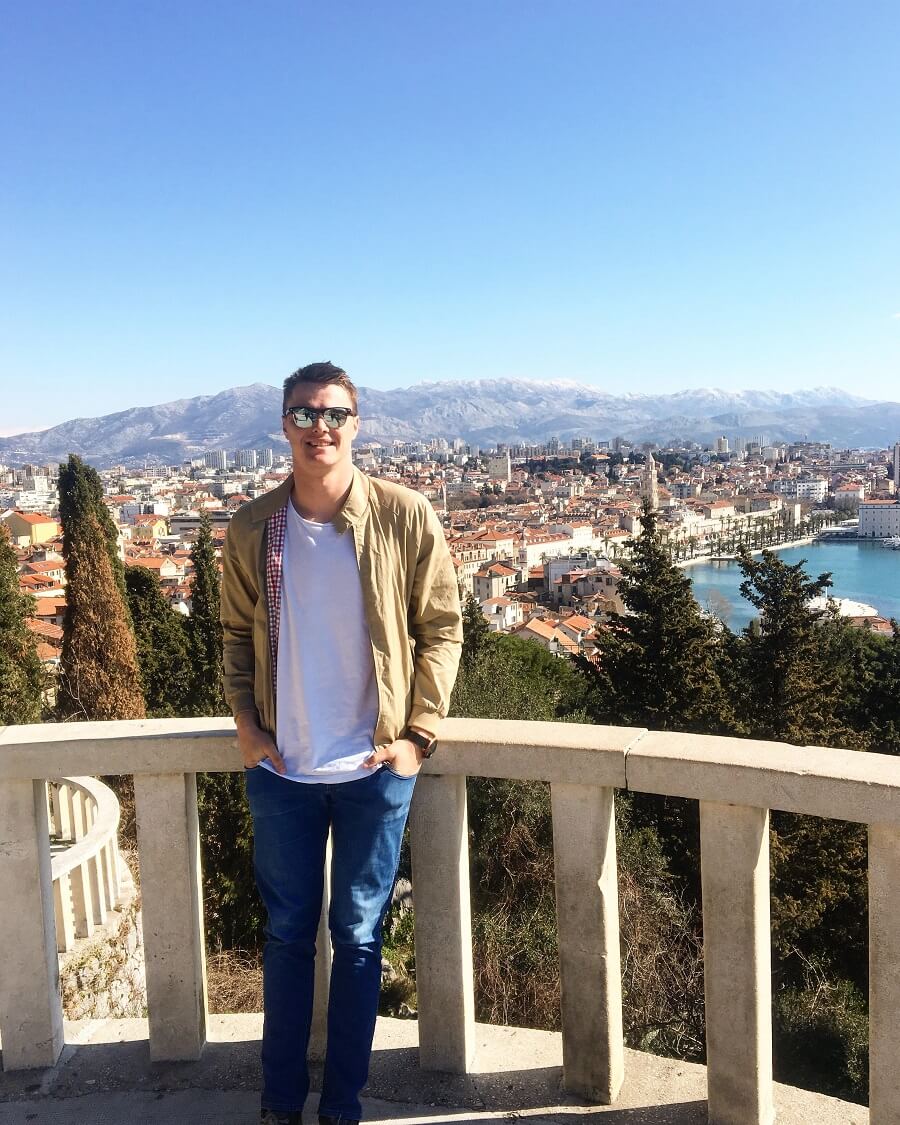
Because of the scheduled break in the season, my girlfriend and I had planned a weekend getaway to London. The plane was half empty, the airports barely populated and the security checks at Heathrow were insanely quick. These were all a touch harrowing because while the rest of the world had begun feeling the effects of the coronavirus in how their day to day lives were affected, life in Croatia at that point was still regular programming. Although for all the alterations to our travel experience, London was still fully functioning. We were very lucky to be able to attend the Premier League match that we had come to see, given it was the last match day to be played, even luckier that it was a 4-0 victory to Chelsea.
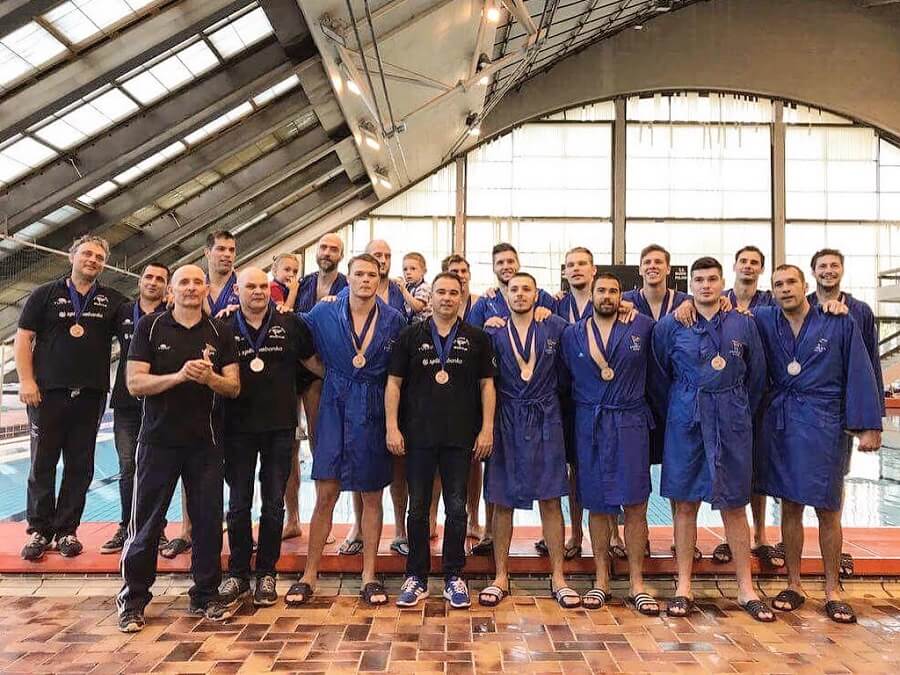
When we returned to Croatia there had still been no movement towards a lockdown from the government, however, my Jadran coach had shifted training to once a day which felt like an ominous sign of what was to come. By the end of that week, it became official that sporting teams and competitions were to stop for an indefinite period. As the Olympics, at that time, were still to proceed, this meant I needed to get myself back to Australia so that I could continue my training.
On a Monday afternoon, we booked my flight for Wednesday morning, just 40 hours away. However, as news broke on the Tuesday that the EU would be closing its borders by noon on the day of my flight (which was meant to leave Zagreb for Doha at 2:30 pm), I needed to find an alternative, which really only meant me leaving ASAP.
My girlfriend and I scrambled to find flights, most of which meant me bussing to Zagreb that night and leaving the European Union on any flight possible Wednesday morning. I called the Australian Embassy in Croatia to see if they had any information, and with so much confusion about what was to come, taking the risk seemed like the best thing to do. I had the Australian Water Polo Federation write me a note requesting my arrival back in the country just in case.
The next 15 hours were spent packing up my life in Croatia and the Split apartment I had been living in for the last two years.
In what was a whirlwind of emotions, I was finally beginning my departure at 5 am on a Wednesday from the country I had called home for 4 years. What made this so much tougher was that there were so many friends I had been unable to say a proper goodbye to.
The flying experience on my London trip had been different but nothing like what it was a week later as I tried to get home to Australia. As I flew the day the EU had shut its borders, naturally, there was so much uncertainty and nervousness around how commercial airlines would react. It was scary to see how poorly executed some of the security measures were at airports. In Doha we disembarked our plane from Zagreb and got onto a bus, only for it not to move for the next hour as the 1 doorway they had set up for health screenings was overwhelmed with passengers. To be crammed onto a bus at such close quarters for so long seemed the peak of stupidity, raising the risk of potential transmissions, when the health check was only relevant for passengers staying in Doha of which our plane had one. My flight to Sydney felt different to any flight I had experienced before. There was an air of relief and small joy permeating through the cabin as everyone on board was an Aussie returning home, knowing they could be with their families for the tough period that lay ahead.
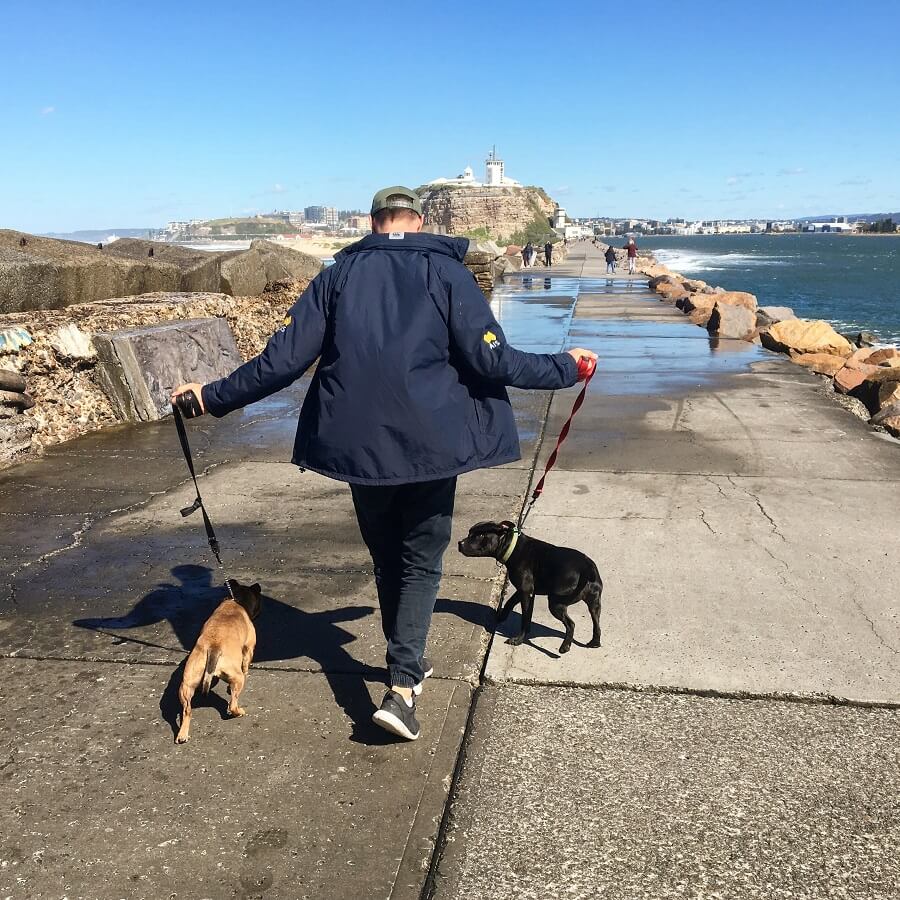
When I landed I was immediately taken home to Newcastle where my two weeks of self-isolation was to begin. The first week I was able to use the Olympics as a motivating factor and it sped fast, however at the beginning of the second week the announcement was made to postpone the Games and I was left looking for a new motivation to get me through. By the time I was out of isolation, Australia had also instigated the social distancing rules that remain in place currently. It is a surreal feeling for me to be home and not burdened by responsibilities yet still be unable to see my closest friends. Like everyone else, I’m looking forward to when we can start getting some semblance of normalcy returning to our lives. Until then, it’s a matter of staying healthy and keeping distant.
For the latest on coronavirus in Croatia, follow the dedicated TCN link.
2020 Sv. Duje Celebration Without Procession and Mass on Split Riva
April 28, 2020 - Marin Barisic, Archbishop of Split-Makarska, announced the upcoming Day of the City of Split celebration - Sv. Duje.
Marin Barisic said that, because of the coronavirus pandemic, on the feast of the patron saint of Split and Split-Dalmatia County, May 7, there will be no traditional procession and mass celebration on the famous Split waterfront, reports Dalmacija Danas.
Mass, however, will be held at 10 am at the Sv. Duje Cathedral and broadcasted directly through the media.
"Due to the special circumstances we are in, there will be no traditional procession and Eucharistic celebration on the waterfront this year. However, on the feast day, Thursday, May 7, from the Sv. Duje Cathedral, you will be able to follow the Holy Mass from your homes - your home churches. At 10 am, it will be broadcast by HRT, Laudato TV, Jadran TV and social networks," Barisic in a statement.
He recalled that, according to ancient tradition, before the feast, on Tuesday, April 28, the April novena begins.
According to him, the patron saint of Split, bishop, and martyr Dujam, in his Salona from the time of the persecution of Christians, has a vast experience of connecting life at home - our small churches - with Christ and his Church. "May his example also bring to our attention that the family is truly a small church and let his intercession follow all our families," said Barisic.
"The dear Split citizens and representatives of cultural, social and sports associations will have no rich program this year, which each of you regularly prepares in honor of our patron saint. However, know that we won't be without the love and protection of the Holy Spirit for all of us," said Barisic.
He recalled the deep and lasting connection between Sv. Duje and the city of Split, that is, his worshipers.
"He is our memory for all generations of this city and our local Church. That is why the people of Split always have, with confidence, called upon their faithful protector in all dangers: war, plague and hunger. We are also calling him today, in danger of the coronavirus pandemic that has affected not only our environment, but the entire world. We ask him for bravery and to follow those who make political decisions, then our doctors, medical staff, pharmacists, volunteers, shopkeepers and all those who care about our common good. In particular, we pray for him and the sick and their families and express their closeness to them, and for all the deceased, may the Lord, according to Dujam's intercession, share the fullness of the joy of eternal life," said Archbishop Barisic.
To read more about lifestyle in Croatia, follow TCN's dedicated page.


